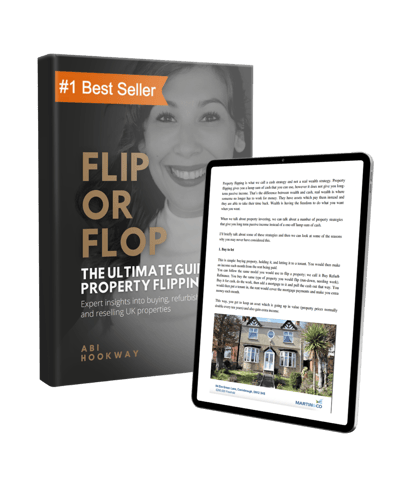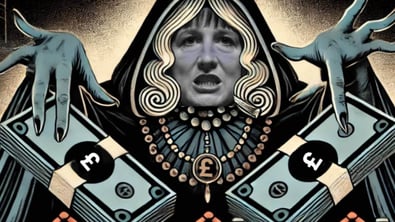In the world of house flipping, understanding how much you can afford to spend on a property is key.
To help estimate how much you can pay for a flip and still make money on the sale, many flippers turn to the 70 percent rule.
This guideline helps gauge whether a property is worth the risk by helping calculate the maximum amount you should spend to buy a house.
What is house flipping?
House flipping involves buying a bargain-priced property that needs work, fixing it up, and then selling it for a profit.
It can be straightforward if all goes according to plan. However, renovations involve unexpected issues that could add to the cost of repairs. Plus, there is always the risk of market dips when you are waiting to find a buyer.
How profitable is house flipping?
Property flipping can be a very lucrative business, but it is important to factor in mortgage rates, property taxes and other costs such as repairs and renovation expenses. You will also need to factor in how long it could take you to find a buyer.
Property flipping can save you money if you buy and sell the property quickly. It is also a great way to get into the real estate market and learn how it works, as well as how to evaluate a profitable investment.
What are the advantages of renovating properties?
Renovating properties can be a great way to add value to the property and make it more attractive to potential buyers. By investing in upgrades such as new bathrooms, kitchens, landscaping and painting, you could increase the value of your flip significantly.
In addition to increasing its overall value, updates also help make the home look more desirable and give it curb appeal. This is especially important when competing with other properties in the same area.
What is the 70% rule in property flipping?
The 70 percent rule states that you shouldn’t buy a distressed property for more than 70 percent of the home’s after-repair value (ARV) minus the cost of repairs.
To use it, you need to first determine the ARV or how much the house will likely sell for once fixed. After you know the ARV, subtract the estimated cost of repairs and multiply it by 0.7 to get your maximum purchase price.
For example, if a home is expected to sell for £300,000 in good condition with £45,000 worth of repairs needed, then 70 percent of £300,000 is £210,000. Subtract the estimated cost of repairs (£45,000), and you get the maximum purchase price of £165,000.
The 70 percent rule is just a guideline and can’t guarantee profits; there are always unexpected issues that could arise or mortgage rates or house prices could rise or fall suddenly.
So, while the 70 percent rule can be a useful tool for house flippers, it’s important to do your own due diligence and research mortgage rates and the local housing market to make sure you don’t buy a property that ends up losing money.
By understanding the risks associated with flipping houses and using tools like the 70 percent rule, you can increase your chance of success and make a tidy profit.
Is the 70% property flipping rule effective?
The 70 percent rule has its pros and cons, but one of the biggest advantages is that it can help you make informed decisions when buying a property with the potential for profit.
By understanding mortgage rates, local housing market trends and estimating repair costs, you can determine whether a house is likely to be profitable before investing in it.
Of course, there are other factors to consider when flipping houses like competition from other flippers or unexpected repairs. But by keeping the 70 percent rule in mind, you can minimise your risk and maximise your profits.
By having an understanding of mortgage rates and house pricing trends as well as using tools like the 70% rule, you can increase your chances of success in property flipping. With the right strategies, you can make a tidy profit while avoiding costly errors.
What are property flippers’ next steps?
Property flipping provides lucrative opportunities for property investors, who can often add 20-40% onto the value of a property.
The 70% rule is subjective to a renovator and property’s circumstances, for more detail we strongly recommend seeking tailored advice via a property investment course or mentorship programme.
Touchstone Education’s Abi Hookway said: “Property flipping is a recommended strategy for significant mark up on a property in a limited time period. It is the property strategy of choice for many investors, but the success of a project depends on a wide range of influencing factors.”
Abi is author of the property flipping book, Flip Or Flop: The Ultimate Guide To Property Flipping. On Sunday at 8pm she is hosting a free webinar on how to take your property flip to the next level. Sign up for the event here: https://bit.ly/3ILwZUi
To find out more information about the property investment courses we offer call us on 01302 897131 or email office@touchstoneeducation.co.uk.










